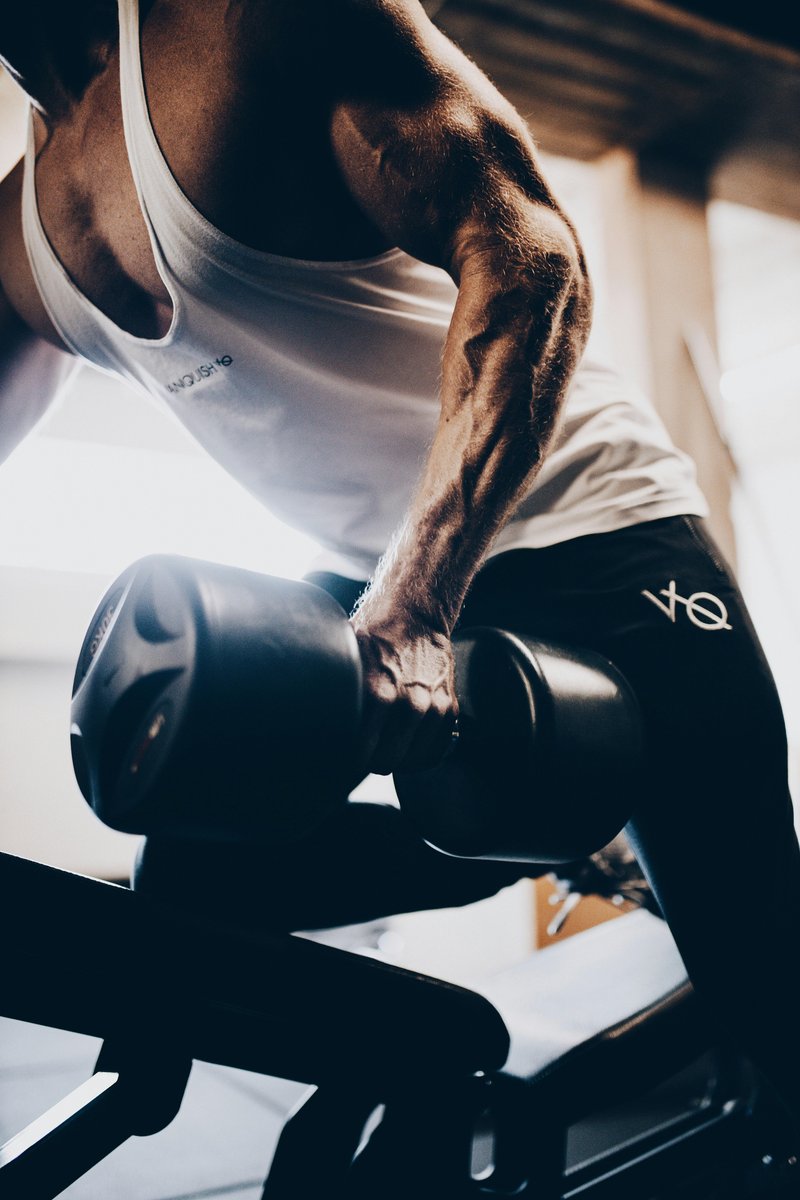Training Too Hard? Here’s How Overtraining Might Be Killing Your Testosterone
You’ve been pushing your limits — early mornings, intense lifting, cardio, zero rest days. But suddenly, you’re tired, moody, not sleeping well… and your sex drive? Gone. So you ask: does overtraining lower testosterone? The answer is YES — and it’s one of the most overlooked causes of hormonal burnout in men.
What Is Overtraining?
Overtraining happens when your body doesn’t have enough time to recover between sessions. It’s not just about physical exhaustion — it’s a deep, systemic stress overload that affects your brain, hormones, sleep, mood, and yes, your testosterone.
Warning Signs You’re Overtraining
- Constant fatigue — even after 8+ hours of sleep
- Poor recovery between workouts
- Weaker performance and plateaus
- Low libido and erectile issues
- Increased anxiety, irritability, or depression
- Frequent colds or illness
Sound familiar? You might be sacrificing your hormones in the name of hustle.
How Overtraining Lowers Testosterone
When you train too often without proper rest, cortisol (your stress hormone) rises — and cortisol inhibits testosterone. Your body sees stress and shuts down non-essential systems like reproduction. The result: low T, poor erections, and zero motivation.
Science-Backed Proof
Studies on endurance athletes and bodybuilders show consistent drops in testosterone during overreaching phases. One study found that after just 2 weeks of intense training without rest, men’s free testosterone dropped by over 30%. Recovery reversed it — but only after complete rest and nutrition intervention.
How It Affects Your Sex Drive and Erections
Low testosterone from overtraining means reduced libido, softer erections, and longer recovery between sexual encounters. You may start skipping sex entirely — not because you don’t want it, but because your body just isn’t firing anymore.
Internal Link: Low Libido and Constant Fatigue
If you’re always tired and don’t know why, there’s a chance your hormones are already crashing. Read this deep-dive on fatigue and low libido.
What Happens When You Rest
Here’s the good news: your body rebounds fast. Testosterone production ramps up during deep sleep and post-workout recovery. By pulling back for 1–2 weeks, prioritizing sleep, and dialing in your food, you can restore hormonal balance and come back stronger — in every sense.
How to Train Without Crushing Your Hormones
- Limit intense workouts to 3–4x per week
- Use deload weeks every 4–6 weeks
- Prioritize sleep (7–9 hours)
- Support with testosterone-friendly foods
- Include active recovery (walking, mobility, sauna)
Smart Nutrition for Recovery
When overtrained, your body craves nutrients. Fuel it with:
- Grass-fed beef, eggs, and organ meats
- Complex carbs like rice, potatoes, and oats
- Hydration with electrolytes
- Anti-inflammatory foods: berries, turmeric, olive oil
Supplements to Rebuild Testosterone
- Vitamin D3: Supports natural hormone production
- Magnesium: Calms cortisol and improves sleep
- Shilajit: Ancient testosterone booster
- Ashwagandha: Reduces stress and cortisol
- Boron: Increases free testosterone
Internal Link: Blood Flow May Also Be Down
Low testosterone often affects circulation. Learn how to boost blood flow to your genitals naturally and restore full sexual performance.
Take a Step Back to Go Forward
Overtraining feels like progress, but it’s often self-sabotage. You don’t grow in the gym — you grow during recovery. And that includes your hormones, erections, confidence, and drive.
Feeling the Burnout?
If you’ve hit a wall with your energy, sex drive, and performance — see the natural protocol men are using to rebuild testosterone and reclaim bedroom dominance.
The Sleep-Testosterone Connection
Deep, uninterrupted sleep is when your testosterone production peaks. Overtraining often leads to poor sleep quality — increased night awakenings, restless legs, and low REM sleep. This becomes a vicious cycle: no sleep → low testosterone → worse recovery → more fatigue → more stress → worse sleep. Fixing this loop is key.
Common Mistakes That Lead to Overtraining
- Training hard and long without structured rest
- Skipping rest days to “stay shredded”
- Not adjusting volume after poor sleep or stress
- Using stimulants (pre-workout, caffeine) to override fatigue
- Under-eating while increasing training intensity
How Many Days Off Should You Take?
If you’re showing symptoms of overtraining, take 5–7 days completely off intense workouts. Focus on walking, stretching, sleep, and nutrition. After that, ease back in with 50–60% of your previous volume for a week. You’ll often return with better pumps, more motivation, and a revived sex drive.
Measuring Recovery: Simple Daily Metrics
- Morning wood (testosterone indicator)
- Resting heart rate (lower = better recovery)
- HRV (heart rate variability — higher is better)
- Mood and confidence
- Libido or spontaneous sexual thoughts
Tracking these is more useful than just counting sets or calories. Your body knows more than your fitness tracker does.
Overtraining vs. Mental Burnout
Sometimes what looks like overtraining is actually life stress bleeding into your training. Work, relationships, lack of purpose — all raise cortisol. Combine that with aggressive workouts and you’ve got a hormonal storm. Rest, yes — but also journal, meditate, talk, or unplug. Reset your mind as much as your muscles.
Internal Link: Could Porn Habits Be Adding to the Problem?
If you’re pushing hard but can’t perform when it matters, there may be more than just training involved. Learn about the role of excessive masturbation and its effect on ED.
Build a Testosterone-Friendly Routine
- Train hard, but smart — 3–4x per week
- Sleep 7–9 hours — no screens 1hr before bed
- Eat like a man — steak, eggs, fats, real food
- Walk every day — move blood, lower cortisol
- Cold showers, sunlight, meditation — nervous system hacks
How Long Does Recovery Take?
Most men feel hormonal and physical improvement within 7–14 days of pulling back. Libido often returns first, followed by better sleep, then strength. By 4–6 weeks, testosterone levels can normalize — if lifestyle changes are consistent.
Why Most Guys Miss the Warning Signs
Men are trained to push through. No pain, no gain. But real power comes from listening to your body and knowing when to reset. Burnout isn’t weakness — it’s feedback. Use it.
The Libido Test: Are You Still Interested?
Low testosterone doesn’t just kill erections — it kills desire. If you’re avoiding intimacy, feel emotionally flat, or can’t get aroused by your partner anymore, overtraining may be draining your sexual drive. Libido is often the first casualty of hormone imbalance — and the first thing to bounce back when you fix it.
Case Study: From Overtrained to Recharged
John, a 35-year-old lifter, trained 6 days a week for 2 years. He looked great but felt awful — tired, irritable, and zero sex drive. Blood tests showed borderline low testosterone. After 3 weeks off intense lifting, plus sleep, red meat, and sunlight, his mood and libido came roaring back. He now trains 4x per week and performs better in — and out of — the gym.
Are You Training for Gains or for Ego?
This is a tough question. Are you lifting to feel better, look better, and perform? Or are you chasing pain for validation? If you’re training through exhaustion, sacrificing sleep, and ignoring signals from your body, it might be time to rethink your approach.
Internal Link: Don’t Forget the Role of Vitamin D
If your hormones are fried, vitamin D might be missing too. Learn how low vitamin D can wreck your erections and slow recovery.
What to Do Right Now
- Take 3 days off — no training, just walking and breathing
- Double your sleep — nap if needed
- Eat nutrient-dense foods with cholesterol and minerals
- Track libido, mood, and energy daily
- Return to training at 70% intensity and rebuild
You Don’t Need to Earn Rest
Rest is part of the plan — not a reward. Testosterone is rebuilt in the stillness. That’s where your edge comes back. If you want to perform like a beast, you need to recover like a king.
Conclusion: Balance Is Strength
So, does overtraining lower testosterone? Absolutely. But it’s fixable. You’re not broken — you’re just burnt. Back off, refuel, rebuild. Your sex drive, energy, and alpha mindset will come roaring back.
One Powerful Step Forward
Ready to stop guessing and start restoring your testosterone naturally? Tap into the complete protocol trusted by high-performance men around the world — no injections, no shortcuts, just results.
Track Your Comeback Like a Pro
Want to know if you’re truly recovering? Use a simple log to track daily metrics:
- Morning energy (scale 1–10)
- Sexual thoughts or morning wood
- Appetite and digestion
- Strength or pump in training
- Mood and confidence
Small wins compound. Seeing trends gives you data — and motivation — to keep pushing forward.
You’re Not Weak — You’re Waking Up
Backing off doesn’t make you soft. It makes you smart. Learning to listen to your body, protect your hormones, and train with purpose is next-level masculinity. Anyone can overtrain — few men can optimize. Be the one who evolves.
Final Word: This Is How You Win Long Term
The strongest men aren’t always the ones lifting the most — they’re the ones who know how to recover, rebuild, and come back smarter. Protect your testosterone. Respect your recovery. That’s how you dominate for life.
Rest harder. Rise stronger.










